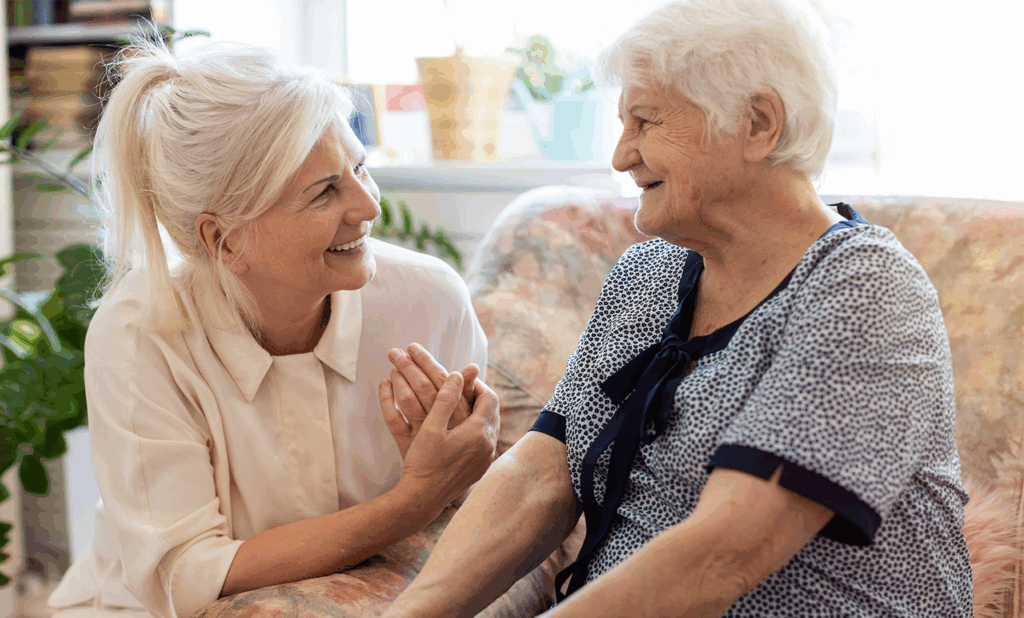As a society, we often focus on the needs of those receiving care, but we can sometimes overlook those who dedicate their lives to giving it: caregivers. These selfless individuals — spouses, children, parents and friends — often put their own lives on pause to support someone they love.
Most caregivers are unpaid and provide daily assistance to those who are aging, living with disabilities or facing chronic conditions like dementia. And the number of caregivers is growing. By 2030, over 70 million Americans will be over 65, and many will need care. Among this rising cohort of caregivers, women carry an especially heavy load. Women account for 61.5% of dementia caregivers, and daughters often provide twice the hours of care compared to sons — managing medication, bathing, dressing, cooking and emotional support for loved ones with complex needs.
The unseen toll of caregiving
The role of caregiver is profoundly rewarding, but also incredibly demanding. Caregivers shoulder numerous responsibilities — shopping, managing bills, offering personal care — all while navigating emotional strain, physical fatigue and financial stress. And for those caring for individuals with dementia, the burden is even greater.
- Dementia caregivers experience higher rates of acute and chronic conditions than other caregivers — with more frequent hospital visits, higher risk of stroke, heart disease, diabetes and even early mortality.
- In Pennsylvania, 62% of unpaid caregivers report living with at least one chronic health condition, and over 16% describe frequent poor physical health.
- Spousal caregivers of individuals with dementia are 5 times more likely to suffer from depression, and nearly 1 in 5 will die before the partner they’re caring for.
- Caregivers often report losing up to 5 hours of sleep per week due to stress and insomnia, which increases as caregiving responsibilities intensify.
- Tragically, 74% of family dementia caregivers worry about maintaining their own health, and 27% report delaying or skipping care for themselves.
These stats remind us that behind every cared-for person is a caregiver whose own health and well-being deserves attention.
Tips for caregivers: Caring for yourself while caring for others
If you’re a caregiver, especially one supporting a loved one with dementia, your physical and emotional health matters. Here are a few strategies to help:
- Ask for help — and accept it. Make a list of what you need and let others choose how to pitch in.
- Focus on your strengths. Nobody can do it all. Recognize where you thrive, and get support for the rest.
- Connect with resources. Local organizations, support groups and respite care providers can help lighten the load.
- Seek community. Relationships are your lifeline. Schedule time with people who support you emotionally.
- Prioritize your health. Sleep, movement, nutrition, hydration — all essential. Make self-care non-negotiable.
- Talk to your healthcare provider. Caregivers are at increased risk of illness — keep your own routine checkups and screenings on track.
Respite care: When you need a break
Respite care gives caregivers time to rest and reset. Resources for caregivers include:
- In-home respite care, with a professional stepping in temporarily.
- Adult day care centers, offering a safe, stimulating environment for your loved one.
- Short-term residential stays in nursing homes or assisted living communities.
These services allow caregivers to recharge while ensuring their loved one remains supported and safe.
Caregivers play an essential role in our health system and communities. As the needs of aging Americans grow, so will the pressures on those providing care. Whether you’re new to caregiving or have been doing it for years, you’re not alone — and you deserve support too.
Primary Care
Discover more about Primary Care, including locations and providers, at Mount Nittany Health



